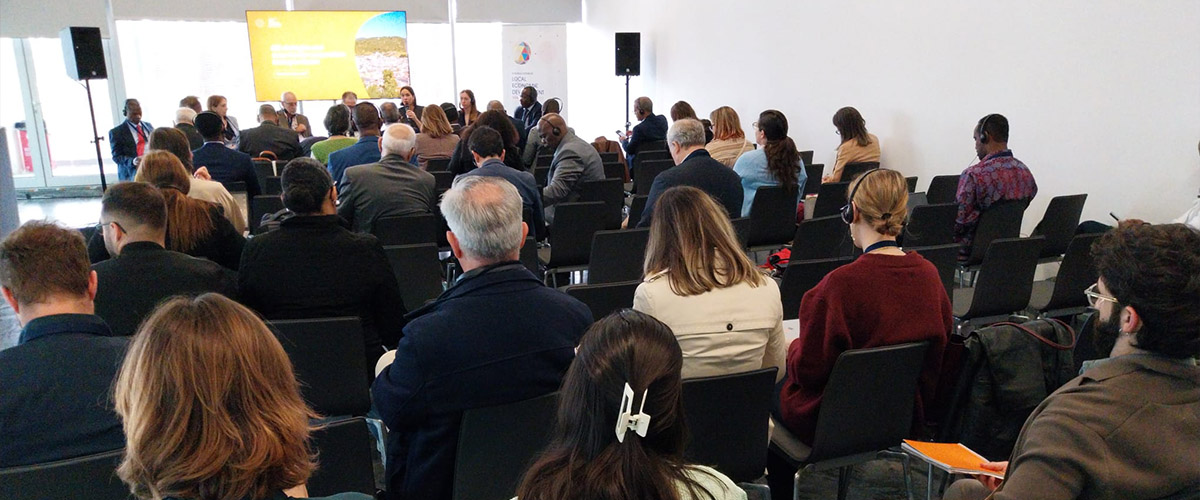Cross-border cooperation consolidates as a driver of development

On April 2, 2025, within the framework of the 6th World Forum on Local Economic Development (WFLED) held in Seville, the session titled "LED Strategies and Cross-Border Cooperation: Connecting Territories" was held, organized by ORU Fogar and the Association of European Border Regions (AEBR). The session brought together experts from three continents to analyze how cross-border cooperation (CBC) drives sustainable development in border regions.
Moderated by Martín Guillermo Ramírez, Secretary General of AEBR, the session featured prominent speakers who shared concrete experiences of cross-border cooperation. Arola Urdangarín, Director of the Nouvelle Aquitaine–Euskadi–Navarra Euroregion, presented the evolution of this grouping toward a European Grouping of Territorial Cooperation (EGTC), highlighting how this model has facilitated the implementation of joint policies in areas such as mobility, education, and innovation.
From South America, Daniel Betancur, Coordinator of the Development Committee of the Uruguay River Basin, shared the cooperation experience between Uruguay, Argentina, and Brazil, focusing on shared management of natural resources and the promotion of economic development in the region.
In the European context, Kate Plaskonis, Senior Advisor for the Øresund Bridge, presented this iconic project that connects Denmark and Sweden, emphasizing how the infrastructure has transformed the economic and social dynamics of the region, facilitating the flow of people and goods.
Raquel Gallego Torres, General Coordinator of External Action of the Andalusian Government, explained the complexity of a region with multiple borders—including with Portugal, Gibraltar, and Morocco—and how cross-border cooperation has been key to addressing common challenges and fostering territorial cohesion.
African representatives also participated, including Dr. Simon M. Zwane from the Ministry of Housing of Eswatini and Bamba Daramane, Mayor of Rosso and President of the Association of Municipalities of Mauritania, who contributed valuable perspectives on the challenges and opportunities of cross-border cooperation on the African continent.
During the session, the importance of joint infrastructure and service planning, shared management of natural resources, and coordination during crises were highlighted as fundamental elements for successful CBC. It was emphasized that a good relationship between neighboring regions and municipalities, based on trust and overcoming historical divides, creates “vital basins,” true laboratories of integration.
Challenges faced by border regions were addressed, such as the reintroduction of border controls during the COVID-19 pandemic, which caused uncertainty and weakened some cooperation processes. However, it was also noted that many established cooperation structures proved crucial for cross-border emergency coordination and other services, emerging stronger after the crisis.
The session concluded with a call to strengthen cross-border structures such as Euroregions and European Groupings of Territorial Cooperation (EGTCs), and to integrate a cross-border vision into public policies and investment programs. It was emphasized that decentralized cooperation and triangular cooperation are essential to promote equitable and sustainable local development in border regions.










































































